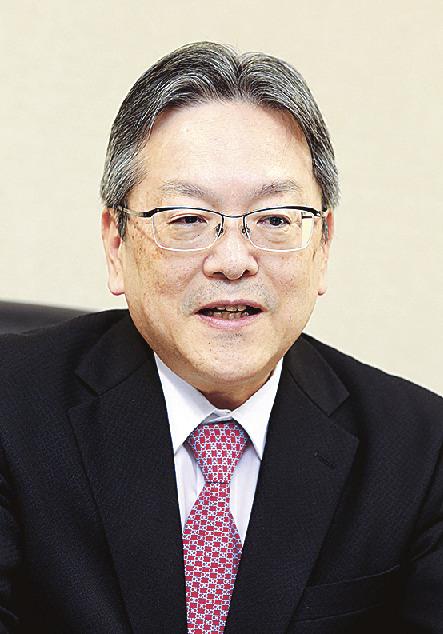
◇ Kazuhisa Nagahashi, Director General of the Department of Construction and Real Estate Economics, referring to the review process of the Society The Ministry of Land, Infrastructure, Transport and Tourism's co-expert "Research Group on Environmental Improvement for the Sustainable Construction Industry" will hold its final meeting on the 29th to summarize the outcome of the discussions. Kazuhisa Nagahashi, director general of the Department of Construction and Real Estate Economics under the Ministry of Land, Infrastructure, Transport and Tourism, who attended most of the meetings and followed the discussions, accepted that "the key word is partnership." Various regulations have been presented for deep-rooted issues such as responding to material price fluctuations and improving the treatment of skilled workers, but to realize them, the understanding of many stakeholders, including orderers and orderers, prime contractors and subcontractors, are indispensable. In the future, the discussion will be referred to the Central Building Industry Council (Zhongken Council) to find out operational aspects such as how to respond to the system.
General Manager Nagahashi gave an interview to Nikkan Kensetsu Kogyo Shimbun before the last meeting = photo. Amid growing wage growth momentum driven by the entire government and soaring raw material prices following Russia's invasion of Ukraine, he stressed the need to prevent pressure on labor costs, hamper wage increases and shift to price increases appropriately. With the construction market not expected to grow fast in the future, he called for strong leverage in the industry structure.
As a form of sustainable industry, he said, "It's attractive to young people and the metabolism works," and cited worsening worker shortages as the biggest problem. At the study meeting, the Ministry of Land, Infrastructure, Transport and Tourism did not prepare a draft policy as a starting point, but rather actively incorporated the proposals of experts. In the belief that "the industry must be chosen by young people," he says, "I've received input from a relatively young generation of teachers with new perspectives, including people from a variety of professional fields and other disciplines." Based on
Discussions so far, we will aim to "create a suitable competitive environment in which parties involved in transactions related to the production process of the construction industry can overcome price increases appropriately through partnerships." In order for customers to understand each other and equally, A mechanism to enhance the transparency of contractual contracts has been proposed. To ensure wages comparable to other industries and improve working styles, such as two days off per week, measures to prevent dumping of labor costs and construction time will also be emphasized.
By building partnerships, he said, "We will create a labor market where the skills and experience of technicians working in the field are firmly valued" and expressed his enthusiasm for "that is the goal of the Construction Career Advancement System (CCUS), And we're going to make it work right."
As the research meeting was an exchange of ideas emphasizing perspectives from outside the industry, discussions with industry stakeholders began in earnest at the Central Building Trial. At the moment, it is a white paper on how it will be introduced into the legal system, but we intend to present all the points discussed at the study meeting and consider how to deal with them.
Mr. Nagahashi pointed out that as a direction to implement each measure, "there is a scale for assessing inappropriate contract prices" when limiting low-cost sales involves reducing labor costs, for example. To overcome price increases between orders, establishing rules on how to estimate and bear unexpected risks will also be a problem. The focus could be on what kind of landing points can be found at the Central Building Test, where different stakeholders gather.






